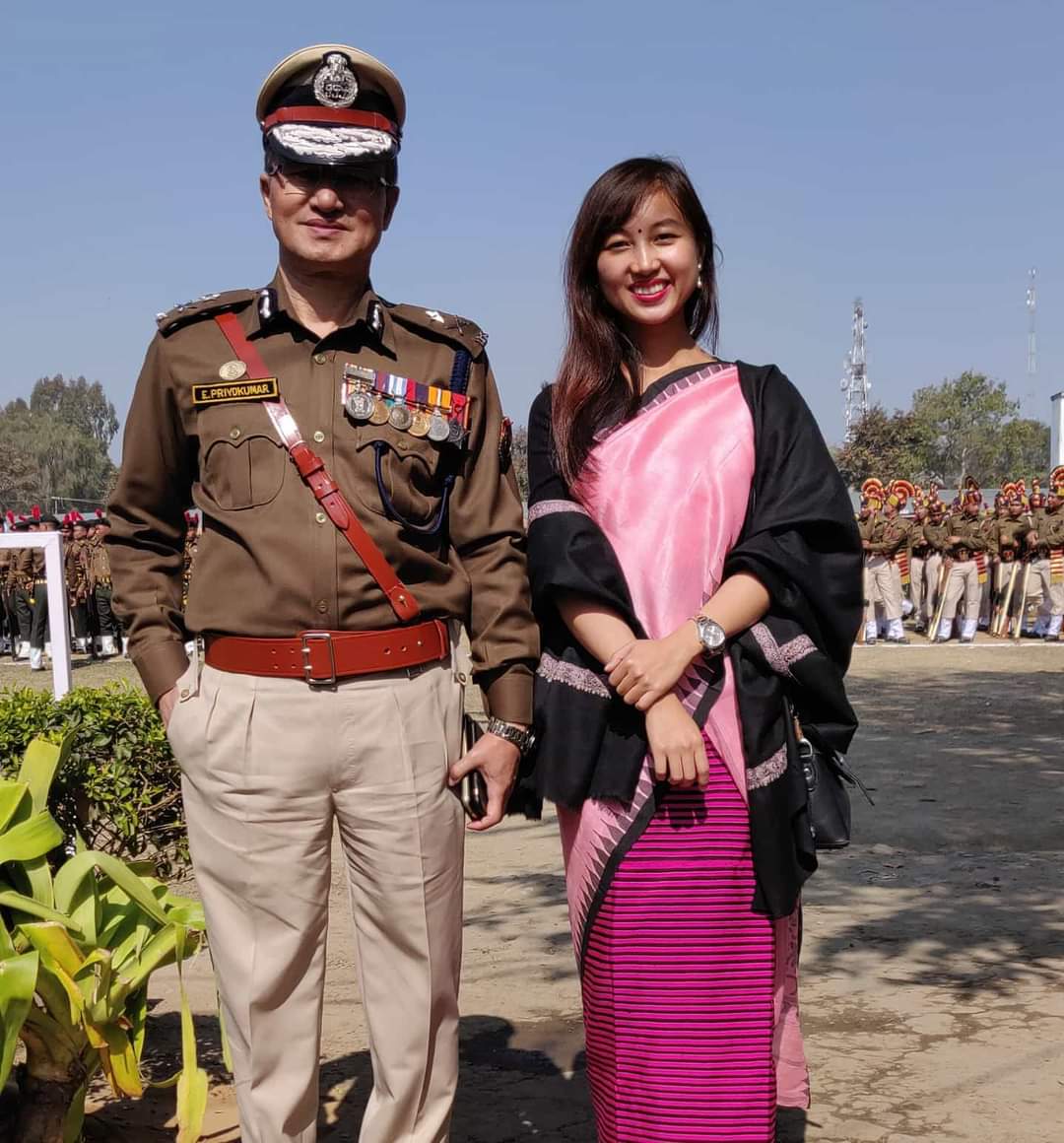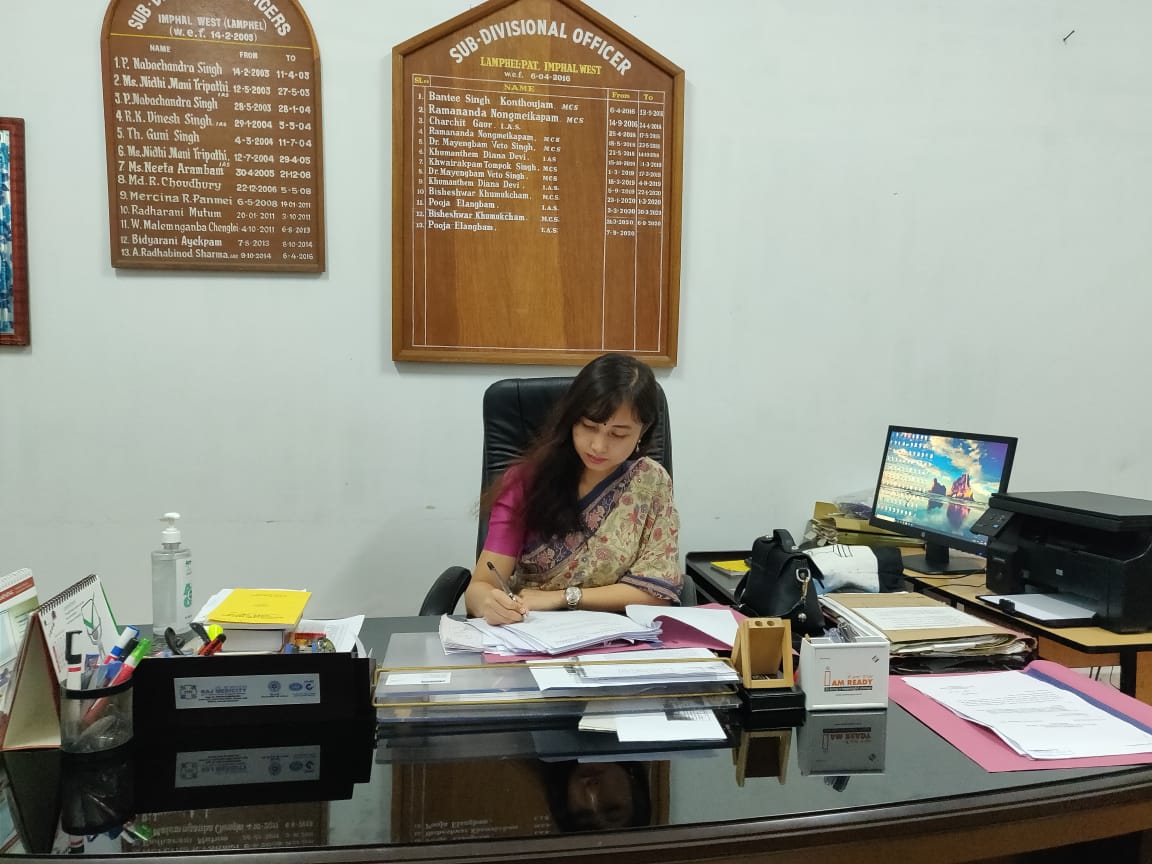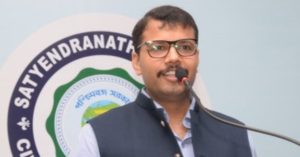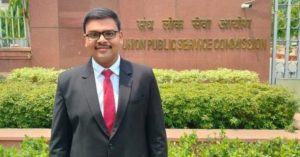Want to Crack the UPSC CSE Without Coaching? AIR 81 IAS Officer Shares How
Pooja Elangbam, an IAS Officer who cleared the UPSC CSE examination without attending any coaching classes shares what worked for her.

Pooja Elangbam (27) is an IAS officer, from the batch of 2018, who secured an All India Rank of 81 in the UPSC (Union Public Service Commission) CSE (Civil Service Examination). Having cleared the examination without attending any coaching classes, Pooja shares with us tips and strategies that worked for her.
Currently posted as the Sub-Divisional Magistrate at Imphal, Manipur, Pooja grew up in the North East of India, where a lot of unrest and issues of insurgency were always present. Joining the civil services, according to Pooja, was one way to make a direct impact. “I grew up watching my father, an IPS officer, work very hard, and that for me was motivation enough,” she says.
Will you need coaching classes?

This is perhaps one of the first things that an aspirant should figure out, says Pooja, who admits that while she had decided to enrol in a coaching centre in Delhi, she was infected with dengue. Forced to stay home, she decided to stay put and prepare. “Given that almost all the content that one uses in the coaching centres is available on the internet, one can decide to use that and chart out a study pattern for themselves,” she says.
She continues, “Aspirants would need to find the reason why they wish to appear for the exam and every time they find themselves wavering, it would be a good idea to revisit that.” Writing the exam because of family and peer pressure will not be beneficial to the aspirant. “Also, look out for coaching videos put out by toppers of the previous year, which gives you a good idea of how to prepare,” says Pooja.
Don’t be hesitant in seeking help

“When I started preparing I was clueless as to where I should begin,” says Pooja. Having decided not to enrol in a coaching class, Pooja needed to figure out how to study all on her own. She says, “I was never afraid of seeking help. I knew a few others who were preparing for the UPSC examination and I would constantly get my doubts cleared by talking to them.”
Pooja adds that she spent a considerable amount of time reading the blogs put out by toppers to understand what strategies worked for them.
If UPSC is the goal, start preparation early

In Pooja’s case, she started preparing for the examination after she completed her Master of Arts degree. “I do think that aspirants could begin earlier. I started preparations a tad bit late,” she says. Also, going through the syllabus with a fine-toothed comb is very important. Aspirants need to understand what their strengths and weaknesses are to be able to prepare well.
Pooja says that aspirants should start preparing using the NCERT (National Council of Educational Research and Training) textbooks as they provide one with a much-needed foundation on the subject. “My strong points were international relations and history, whereas I needed to work on science and technology and economics. So, I spent a longer time getting my concepts cleared in those subjects.”
How many hours should I dedicate to studying each day?

While the answer to this may vary from person-to-person, Pooja says that on an average spending six to seven hours a day studying should be beneficial. “More than how much time you spend studying one should keep an eye on how much of the syllabus is being covered,” says Pooja.
Aspirants believe that shutting themselves up and preparing will help, however, for Pooja, that did not work. “I found that I had to engage with my surroundings to be able to stay positive. I would also exercise everyday and that helped me stay focused. Long study periods did not work for me, and I would sit for two hours at a stretch and then take a break,” she says.
Make a timetable that works for you

Pooja tweaked her timetable to suit her study pattern. “I would dedicate one half of the day to take up international relations and the second half to studying environment and policies. I found it interesting to mix up subjects. UPSC is also an interdisciplinary study, and therefore studying different subjects together helped me,” she says.
Pooja also emphasises on the need to attempt as many mock papers as possible. “The syllabus is vast and if one were to wait to complete the syllabus and then start working on mock papers, it might be too late. As and when one portion of the syllabus is complete, start attempting mock papers,” she says.
What should I read for current affairs?

“Newspapers are the best source of information for current affairs,” admits Pooja. Aspirants need not read the paper cover-to-cover but look only for news articles of relevance and spend time reading and understanding those. When it comes to making notes for current affairs, Pooja says, “You can opt for monthly current affairs magazines like Vision IAS, Drishti, IAS Baba, or Insights India. Stick to two or three of these magazines.”
Memorising facts and figures might not be the easiest thing to do and therefore devising a way to recollect it when the time comes is important. In terms of making notes, Pooja says, “My notes were never exhaustive, but it would give me a good overview of the topic, which I could recall later when needed.”
Find your own support system

For Pooja, her mother was her biggest supporter and cheerleader. “My mother studied alongside me, just so that she could keep me motivated. In fact, if she were to appear for the UPSC examination, she would have passed with flying colours,” says Pooja, adding that her mother studied everything that she did and often quizzed Pooja to ensure that she kept the momentum of preparation going.
“My mom would also check the answers I would write, and give me constructive feedback on it,” says Pooja.
Recommended books and magazines
Reference material recommended by this IAS officer include:
Current affairs – IAS Baba, Drishti, Insight India
NCERT to be used as a base book for all subjects
Environment – Shankar
Polity – M Laxmikanth
Indian art and culture – Nitin Singhania
Newspaper – The Hindu
“It is not a difficult exam to crack. What one needs is to be consistent in their preparation all throughout. It’s like running a marathon, so prepare for the long haul,” Pooja concludes.
(Edited by Yoshita Rao)
This story made me
- 97
- 121
- 89
- 167
Tell Us More
We bring stories straight from the heart of India, to inspire millions and create a wave of impact. Our positive movement is growing bigger everyday, and we would love for you to join it.
Please contribute whatever you can, every little penny helps our team in bringing you more stories that support dreams and spread hope.



















